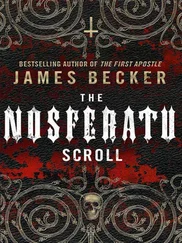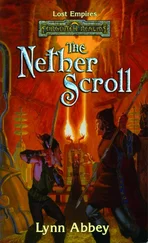Adrian D'Hage - The Omega scroll
Здесь есть возможность читать онлайн «Adrian D'Hage - The Omega scroll» весь текст электронной книги совершенно бесплатно (целиком полную версию без сокращений). В некоторых случаях можно слушать аудио, скачать через торрент в формате fb2 и присутствует краткое содержание. Жанр: Политический детектив, на английском языке. Описание произведения, (предисловие) а так же отзывы посетителей доступны на портале библиотеки ЛибКат.
- Название:The Omega scroll
- Автор:
- Жанр:
- Год:неизвестен
- ISBN:нет данных
- Рейтинг книги:3 / 5. Голосов: 1
-
Избранное:Добавить в избранное
- Отзывы:
-
Ваша оценка:
- 60
- 1
- 2
- 3
- 4
- 5
The Omega scroll: краткое содержание, описание и аннотация
Предлагаем к чтению аннотацию, описание, краткое содержание или предисловие (зависит от того, что написал сам автор книги «The Omega scroll»). Если вы не нашли необходимую информацию о книге — напишите в комментариях, мы постараемся отыскать её.
The Omega scroll — читать онлайн бесплатно полную книгу (весь текст) целиком
Ниже представлен текст книги, разбитый по страницам. Система сохранения места последней прочитанной страницы, позволяет с удобством читать онлайн бесплатно книгу «The Omega scroll», без необходимости каждый раз заново искать на чём Вы остановились. Поставьте закладку, и сможете в любой момент перейти на страницу, на которой закончили чтение.
Интервал:
Закладка:
Giovanni took Allegra’s cup and put it next to his on the sand. His lips were salty as she moulded herself against his body. Giovanni held her more tightly and she found herself responding, willingly. Allegra found herself searching out Giovanni’s tongue with her own.
‘Oh, Giovanni.’
Giovanni was torn.
‘Allegra,’ Giovanni whispered. He fumbled with the clip on her swimsuit and she reached around to help him. Her small breasts were wet with beads of saltwater, her nipples hard and erect. Allegra groaned as he licked them softly and gently took them in his mouth.
That night both had knelt for a long time asking forgiveness. Accettazione. Now they lay awake. Confused and uncertain. Allegra stared out of her window at the night sky. Her room was upstairs, next to Giovanni’s at the front of the house. The lights from the marina were subdued and a light breeze feathered the Tyrrhenian below.
Why? she asked her God for the hundredth time. Why was this so wrong? She knew the episode with Carlo had been wrong, but this was so different. Testarda. Brilliant, gentle Giovanni, and so much fun to be around. He was someone she felt she could spend the rest of her life with, helping him achieve whatever it was that God wished him to achieve. Someone from whom she had learned so much. Someone with whom she was now deeply in love. Yet the Church forbade it. Why? Allegra began to sob, silently. Sobs born of desperation and frustration, and an increasing questioning of her faith.
In his room Giovanni was on his knees again praying for forgiveness to a God who, tonight, seemed very, very distant, silent, immoveable. He had asked for forgiveness, but he felt alienated because his feelings for Allegra were stronger than ever. Alienation from his God was new territory for Giovanni. He tried to distance his heart from his head, but that didn’t help. As a young seminarian he had accepted celibacy without too much thought. It had not seemed an extreme price to pay to serve Christ, until now. Giovanni opened his eyes and stared up into the night sky and the galaxies that stretched for billions of light years. Years of study, as both a theologian and as a scientist, had caused him to think more deeply, and never more deeply than tonight, struggling with the Church’s hypocrisy on sex. A Church that taught one thing, yet often secretly practised another. Giovanni knew that many Catholics were unaware that for a thousand years after Christ, Catholic priests had been happily married and were more effective because of it. Then in 1074 Pope Gregory VII, while keeping a mistress himself, had decreed that priests could only owe allegiance to the Church. Thousands of married priests ‘were to be freed from the influence of their wives’ and divorced. Giovanni also knew there was a more sinister reasoning behind the damaging policy of celibacy; the early Church had moved to protect her vast holdings of property because there had been a danger at law that the children of priests might inherit that property and deprive the Church of an accumulation of wealth.
Christ had absolutely nothing to say about celibacy. Never even thought it worthy of a mention, other than that he had chosen not to marry – or had he? The Church always downplayed Christ’s enjoyment of the company of women. Giovanni reflected on Luke’s description of Jesus travelling through the towns and cities of the Holy Land with several women among his disciples. ‘Joanna, the wife of Herod’s steward Chuza, and Susanna, and many others – who provided for him out of their resources.’ All this in a culture where it was forbidden to speak to a woman in public, let alone travel with them. Jesus was charismatic, spiritual and a gifted speaker, and he treated women as equals. No wonder they were attracted to him. Perhaps Mary Magdalene’s relationship with Jesus was much deeper than the Church allowed. Perhaps the hypocrisy of the Church on sex and the role of women in religion covered up something that was more spiritually balanced. A sense of harmony between male and female that was a crucial element to the patterns of creation, as Professor Rosselli had hinted at in his lectures.
When sleep came, it was fitful. Giovanni drifted in and out of a drowsy wakefulness, deeply troubled. Somewhere along the line the Faith had become perverted by a male hierarchy intent on increasing their power. The Church had somehow corrupted Christ’s message, of which celibacy was but one element. It didn’t have to be that way.
Giovanni changed gears three times from fourth down to second before he had to stop the Fiat on one of Maratea’s notorious hairpin bends. The gearbox grated and protested as he searched for low gear. An awkward silence had settled over Allegra and Giovanni, broken only by the protests of the little car as they ground up the valley between the mountains in the still of the early morning, the port town of Maratea and the Tyrrhenian slowly receding behind them. The crunching of the gears reflected the cranking up of Allegra’s anger at the restrictions of her Church and she was equally angry at herself for dreaming about a partnership with Giovanni. Why did the Church try to overrule human emotion, and had it always been that way? Perhaps the Omega Scroll did give some insight into a more human Church, a Church that recognised human nature and what people felt in their lives.
‘I’m sorry about yesterday,’ Giovanni said, interrupting her thoughts.
‘Are you?’ she snapped, angry that Giovanni should be sorry for what they both felt for each other, something that was so natural between them. Rebellion had surfaced again, but this time even stronger than before. Molta testarda.
Giovanni was taken aback by Allegra’s response. It wasn’t like her. He felt a shift in Allegra, a strength and determination starting to surface within her.
‘I’m sorry too,’ Allegra said, finally controlling her anger. ‘For the way I sounded. It’s just that I’m not sorry for how I feel and how we responded to each other.’
Giovanni didn’t reply immediately. ‘Me neither,’ he said. ‘But it can’t happen again. We both know that.’
‘I know, but that doesn’t mean we can’t see each other,’ she said defiantly.
Giovanni took one hand off the wheel and reached out for hers. ‘Of course not. There’s no rule against pasta on a Friday night. But… there’s nothing I want more than to be back on that beach with you, but that is too difficult for both of us.’ Giovanni hesitated. ‘I love you, Allegra.’
Allegra turned to face him, her brown eyes gentle.
‘I love you too, Giovanni.’
BOOK THREE
1985
CHAPTER FOURTEEN
Milano
I t was winter. The snow during the night had been unusually heavy. In the Piazza della Scala, the stone coats of Leonardo da Vinci and other statues in the old historic centre of Milano were dusted in white. The cold snap matched the mood of the Cardinal Archbishop of Milano, Lorenzo Petroni. In a concise hand he wrote just one word on one of two documents in the morning dispatches, Accetti, directing his private secretary to accept the invitation to attend the graduation ceremony at the Universita Statale. The second document did nothing to improve his temper. It was a letter from the Chancellor. Eminence, I am writing this letter because Signor Donelli and Signora Bassetti have achieved marvellous results in Philosophy, Archaeology and Chemistry…
The reference to Catholic students as Signor and Signora irritated Petroni, but it was the Chancellor’s description of the pilot program as a brilliant success that annoyed him intensely. It didn’t surprise Petroni that Father Donelli had achieved the University Medal for Philosophy, but at least the problem of what to do with him next had been solved. There had been some initial surprise when Petroni had suggested posting Father Donelli to the Middle East, but there were more pressing issues in Rome than the posting of a young priest to Israel. An ageing Cardinal Secretary of State had acquiesced with a shrug of his shoulders.
Читать дальшеИнтервал:
Закладка:
Похожие книги на «The Omega scroll»
Представляем Вашему вниманию похожие книги на «The Omega scroll» списком для выбора. Мы отобрали схожую по названию и смыслу литературу в надежде предоставить читателям больше вариантов отыскать новые, интересные, ещё непрочитанные произведения.
Обсуждение, отзывы о книге «The Omega scroll» и просто собственные мнения читателей. Оставьте ваши комментарии, напишите, что Вы думаете о произведении, его смысле или главных героях. Укажите что конкретно понравилось, а что нет, и почему Вы так считаете.











